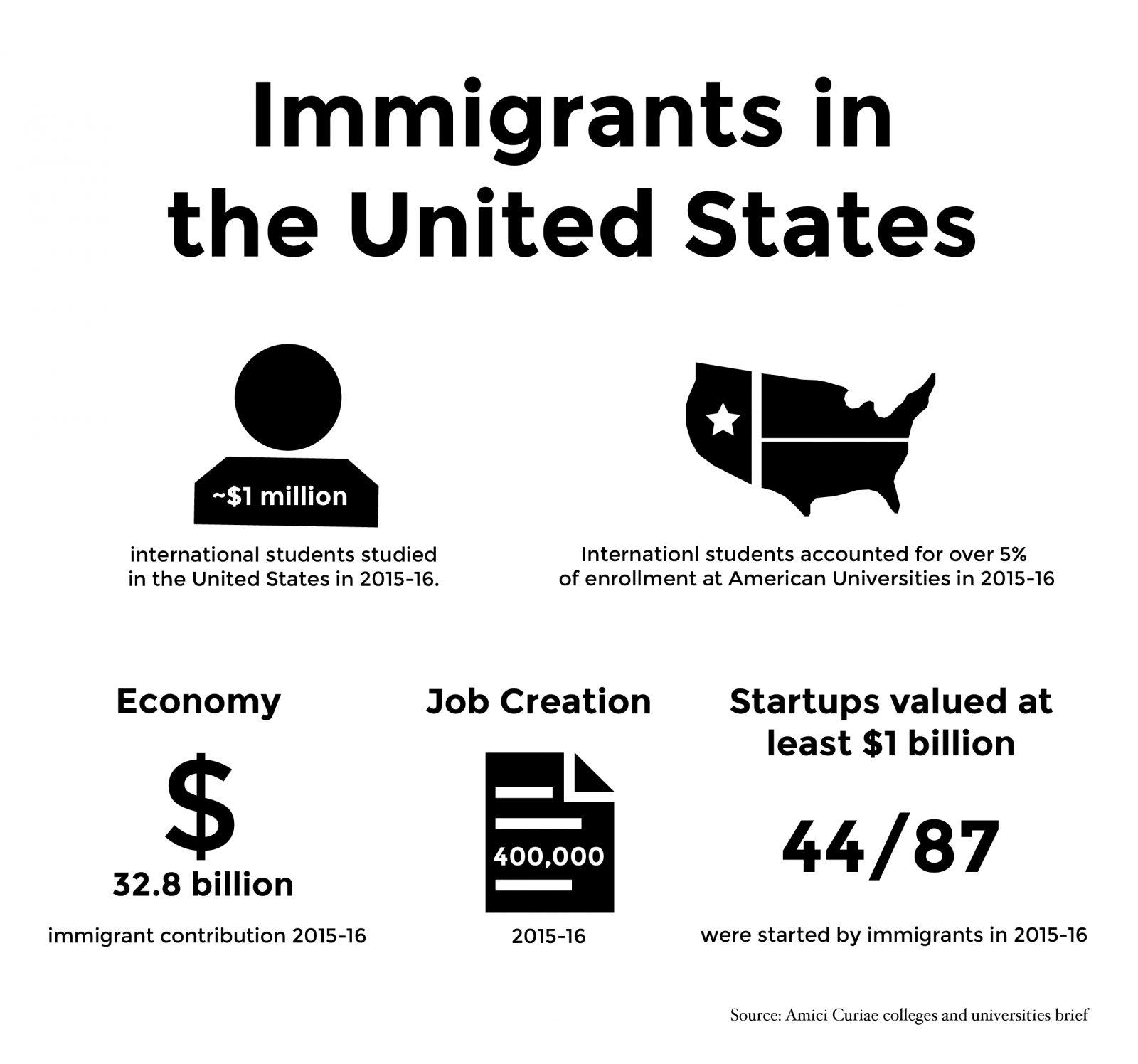
Boston University joined an amicus curiae brief filed Friday challenging President Donald Trump’s revised travel ban, which blocks immigrants from six predominantly Muslim countries.
The 40-page long brief outlines the reasons why international students, faculty and scholars are of irreplaceable value to universities and how they aid the United States economy. It also reviews ways the executive order stymies universities’ progress and puts them at a disadvantage.
The brief presents information and arguments that may be considered by the court, and it has the intention of influencing the United States Court of Appeals for the Fourth Circuit’s decision on the order.
BU joined the brief along with about 30 other colleges from across the nation, seven of which are in Massachusetts, including Harvard University, Massachusetts Institute of Technology and Northeastern University.
BU spokesperson Colin Riley wrote in an email that by joining the brief, the university hopes to make the courts understand how the travel ban will adversely impact students and scholars at the nation’s top colleges and universities.
BU has nearly 100 undergraduate and graduate students and more than a dozen scholars from the six countries that are under the 90-day moratorium on entry, Riley wrote.
“The travel ban separates them from their family members living abroad and may make them hesitant to leave the United States for conferences, meetings or personal trips home in case they are unable to re-enter the country,” Riley wrote.
He wrote that he hopes the university’s legal action will prevent the executive order from barring bright students from the countries impacted.
“It is the university’s hope that students and scholars from the six countries who wish to study, teach, or engage in research in the United States are permitted to do so, so that US institutions of higher education, including BU, can continue to attract the best and brightest from all over the world,” Riley added.
Emily Burlij, the associate director for the university’s Office of Federal Relations, said the executive order goes against everything BU stands for.
“[Joining the brief] is our way of standing up for our researchers and our students and being able to showcase what our values are and hopefully help fight for them so we can either overturn these or help carry it to a higher court where it might play out later on,” she said.
One argument that the brief underlines is the importance of diversity and how this provides campuses with a free exchange of ideas. Moreover, it allows all students on campus to become more receptive to different global issues and have a better sense of a global and pluralistic society.
The brief states the different experiences and perspectives these international students bring with them help university communities embrace and learn how to work together across ethnic and religious differences.
In terms of economic incentives, the brief states international students inject hundreds of billions of dollars into the U.S. economy and support a myriad of American jobs. Immigrants can continue to serve the United States once they “become leading innovators, entrepreneurs, artists, and thought-leaders.” Not only this, but many aid in the advancement of their respective fields and make important discoveries and contributions, according to the brief.
Several students said they hope BU’s participation in this legislative action will sway the government to reconsider the implications of its legislation.
Grace Lennon, a freshman in the College of Fine Arts, said she appreciates how BU is taking initiative on such an important matter.
“It’s better than doing nothing,” she said. “We’re such a big school and such a face of Boston, and I think it’s a really good way to honor our city and our country.”
Tien Ho, a sophomore in the College of Arts and Sciences, said she wants Trump to consider the consequences more before passing any legislation that may hurt important institutions.
“Trump argues that it’ll stop terrorists, but I feel like it prevents a lot of people from opportunities to come to America, especially students who are interested in coming here,” she said.
Gabriel Lubbock, a freshman in CAS, said although he views international students as vital to university communities, he is uncertain as to whether the brief will have much of an impact on the court’s decision.
“We need international students to keep this school running,” Lubbock said. “[However, the courts] are trying to determine whether the travel ban is legal or not, not whether it is beneficial or not.”
Alana Levene contributed to the reporting of this article.























































































































